Artificial sweeteners in food
Artificial sweeteners. Though the word “artificial” rings warning bells in your mind, you might have thought these “sugar substitutes” are still a whole lot better than sugary drinks.
Here’s the catch: They actually stimulate your taste buds and make you crave food. Next thing you know – boom – you’ve downed a calorie-rich dinner.
Luckily for you, purging them from your diet is easy. On your next shopping trip, check the labels on the “light, no-calorie, zero sugar” foods – even foods approved as a “Healthier Choice”. If they contain these 5 sugar substitutes we’ve identified below, give them a miss.
1. Acesulfame K
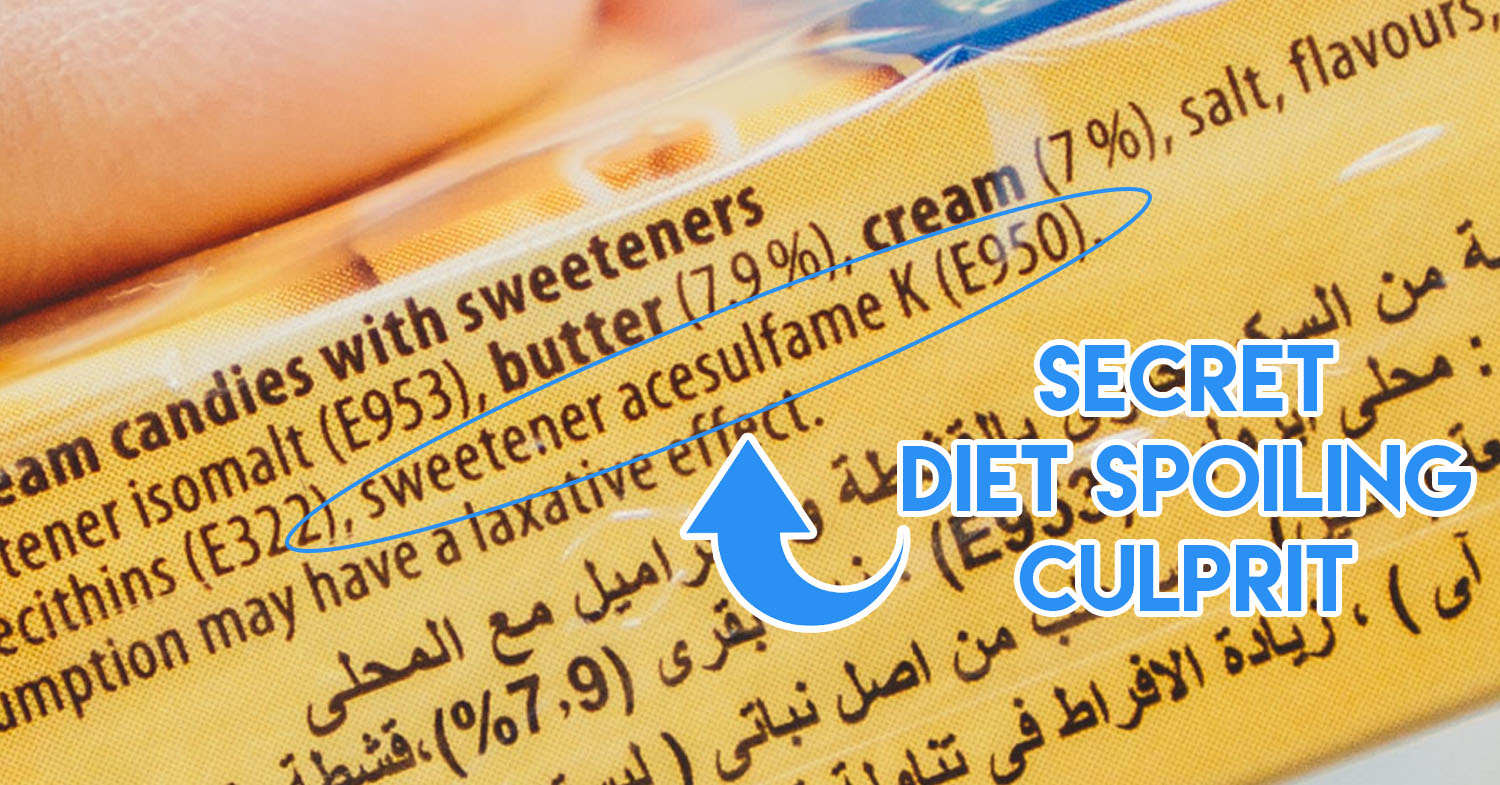
Sometimes appearing on your food labels as E950 or Acesulfame Potassium, Acesulfame K claims to be calorie-free, and is often mixed with other artificial sweeteners like sucralose or aspartame to give a more “authentic” sugar taste.
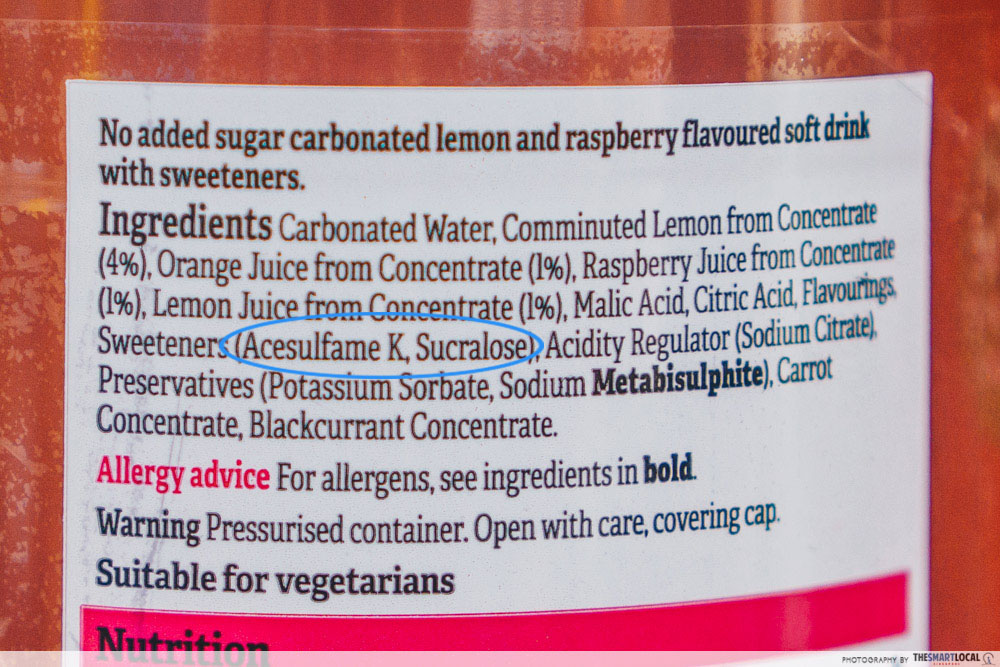
What you aren’t told about this sweetener is this: it contains methylene chloride, and long-term exposure to it is risky, inducing headaches, depression, and nausea. In some cases, thyroid function could become impaired.
Products this can be found in:
- Soda
- Non-carbonated drinks
- Desserts
- Baked goods
2. Maltitol
While sugar alcohols like maltitol are naturally found in some fruits and veggies, they aren’t necessarily a good sub for sugar. For starters, though maltitol is technically not classified as a sugar, it can still cause your blood sugar to spike, as it contains about 2-3 calories per gram.
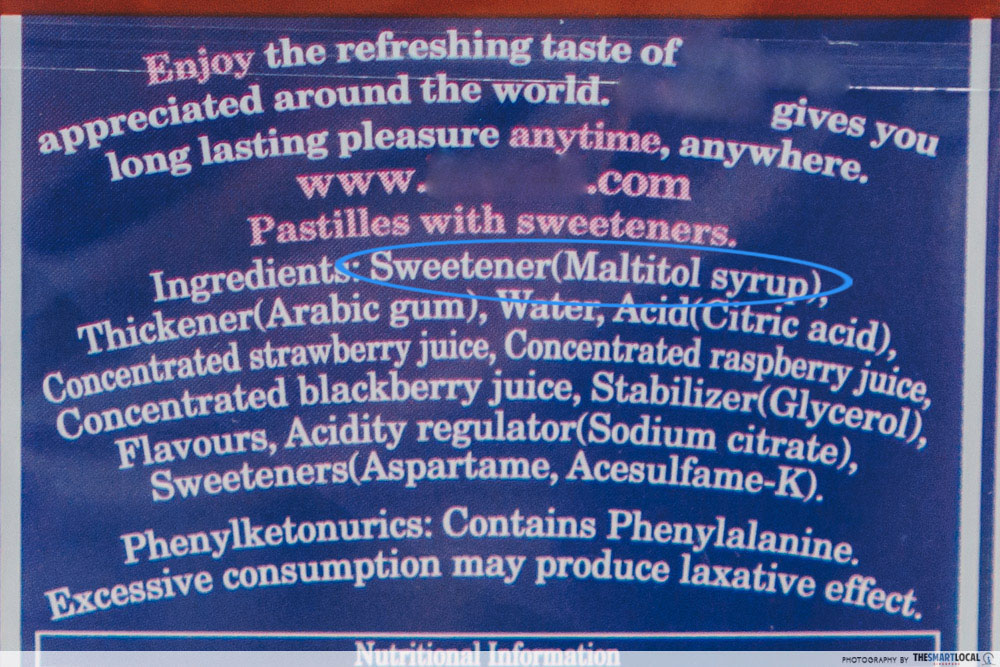
You will also want to be careful about how much maltitol you ingest. As it cannot be fully absorbed by your body, it’ll end up being fermented by your large intestine. That means bloating, farting, or even diarrhoea in severe cases.
Products this can be found in:
- Sugar-free candies
- Sugar-free chocolates
- Energy bars
- Ice cream
- Fondant
- Some cultured milk drinks
3. High-fructose corn syrup
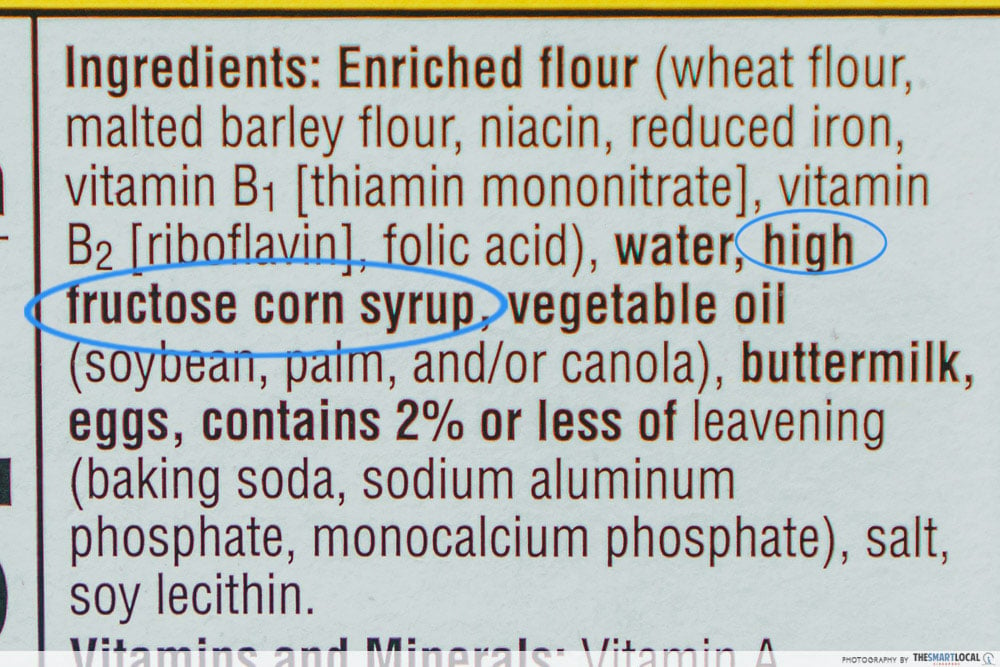
Don’t be fooled by anything that claims to be low in sugar but has high-fructose corn syrup in it. This artificial sweetener is made from agave plant syrup and corn syrup. With the combination of both, it provides a very sweet mix.
Note: Fructose in juices are different from high-fructose corn syrup! The latter has been linked to obesity, which in turn causes chronic conditions like diabetes, heart disease, and even cancer.
Products this can be found in:
- Soda
- Candy
- Bread
- Canned fruit
- Cereals
4. Aspartame
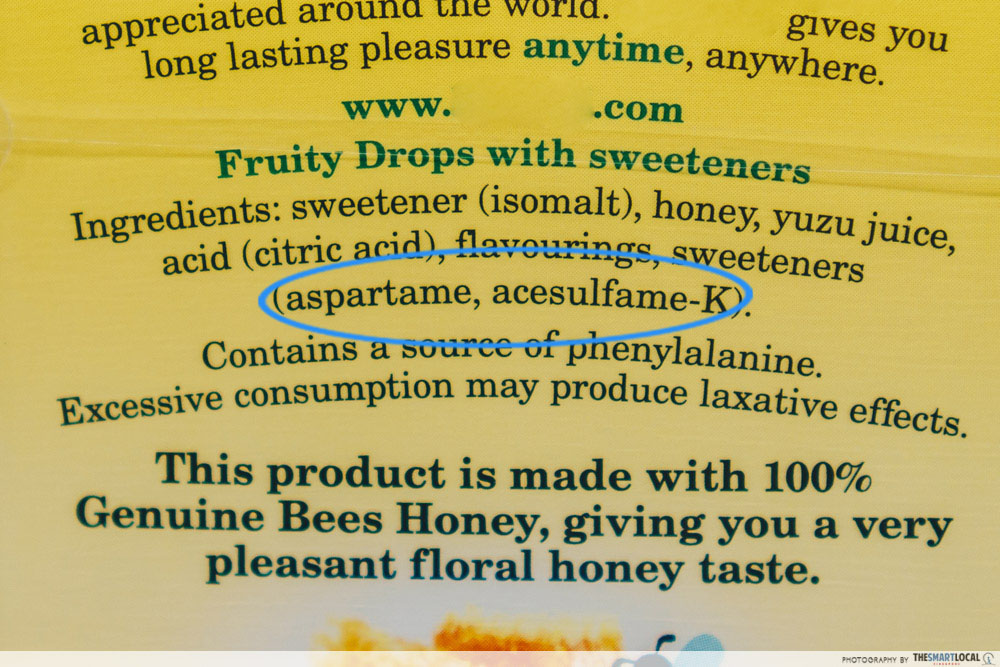 Aspartame is sometimes mixed with acesulfame K
Aspartame is sometimes mixed with acesulfame K
180 times sweeter than regular sugar, aspartame, also labelled as E951, is used in very small quantities for sweetening food. Though it may be deemed safe for consumption, it’s mired in controversy, with studies linking it to a variety of side effects and medical problems.
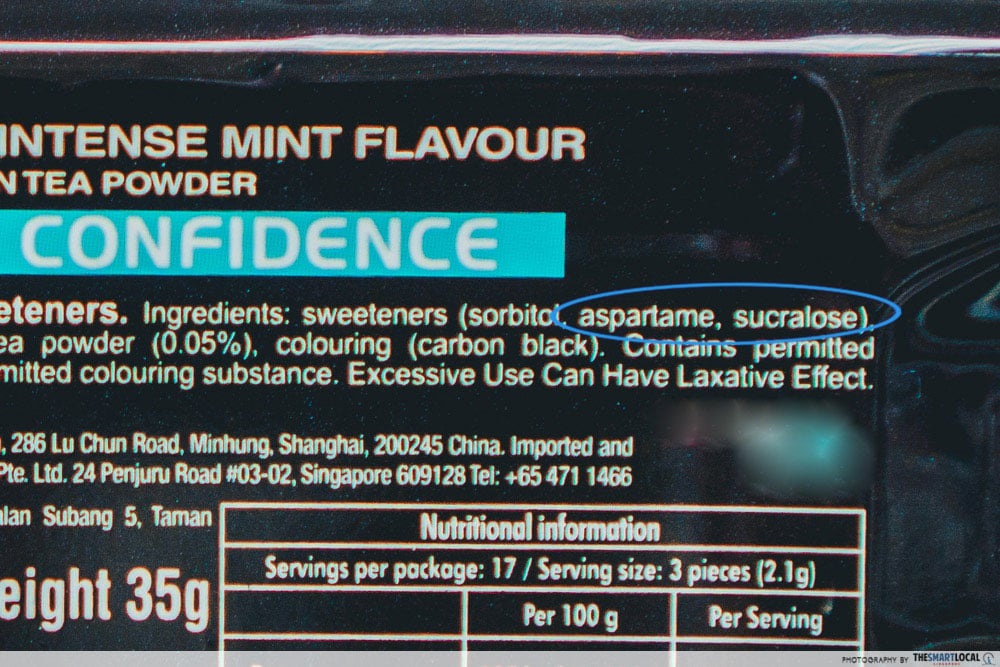 Aspartame can also be mixed with sucralose
Aspartame can also be mixed with sucralose
There’s research showing that aspartame can cause headaches/migraines, nausea, and intestinal discomfort. In more extreme cases, it can even trigger rashes and breathing difficulties.
Products this can be found in:
- Diet soda
- Sugar-free ice cream
- Sugarless candy/mints
5. Sucralose
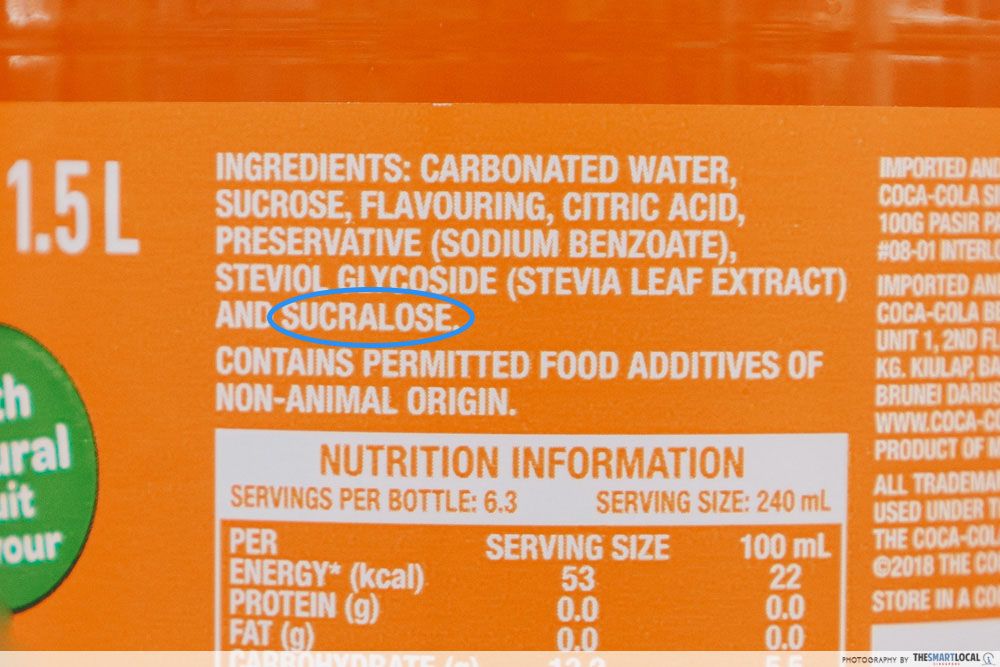
Either marketed as Splenda as a no-calorie sweetener or mixed with acesulfame K in food, sucralose, sometimes appearing as E955 on labels, is no friend of yours. When heated, sucralose interacts with other ingredients – and not in a good way. For example, it mixes with glycerol – found in cheese and bread – to amp up cancer risks.
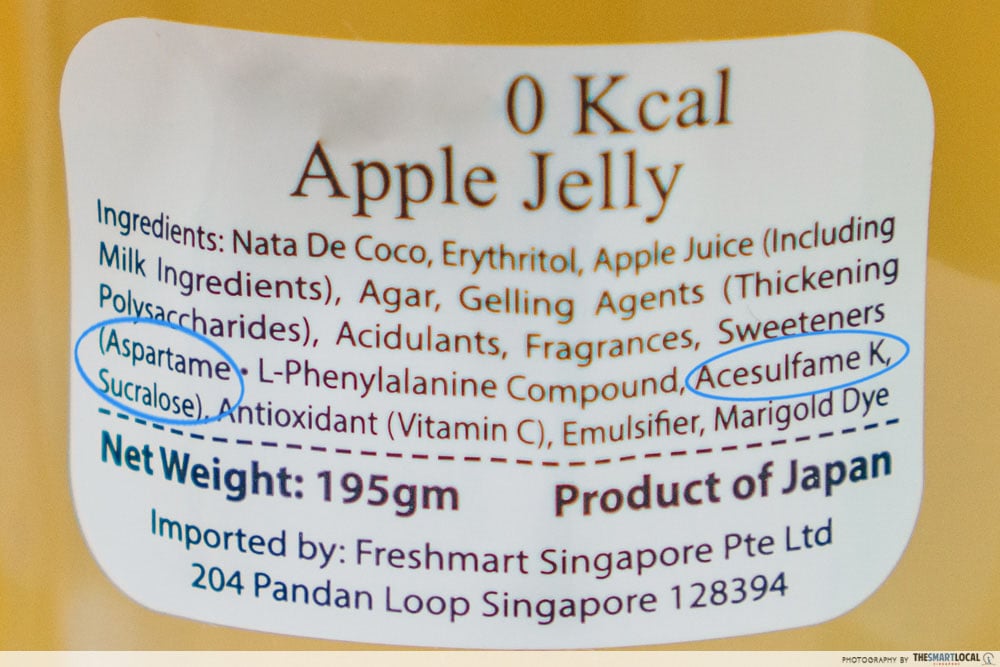 Sometimes, the holy trinity of artificial sweeteners is added to your food
Sometimes, the holy trinity of artificial sweeteners is added to your food
If you were to consume sucralose regularly, your body’s ability to process glucose will be altered. This could lead to glucose intolerance, metabolic disturbances, and even diabetes – all of which cause obesity.
Products this can be found in:
- Diet soda
- Protein powders and meal replacements
- Sweetened condiments
- Some drinks with “reduced sugar/light” claim on labels
Choose VITAGEN Less Sugar, which is free of sugar substitutes
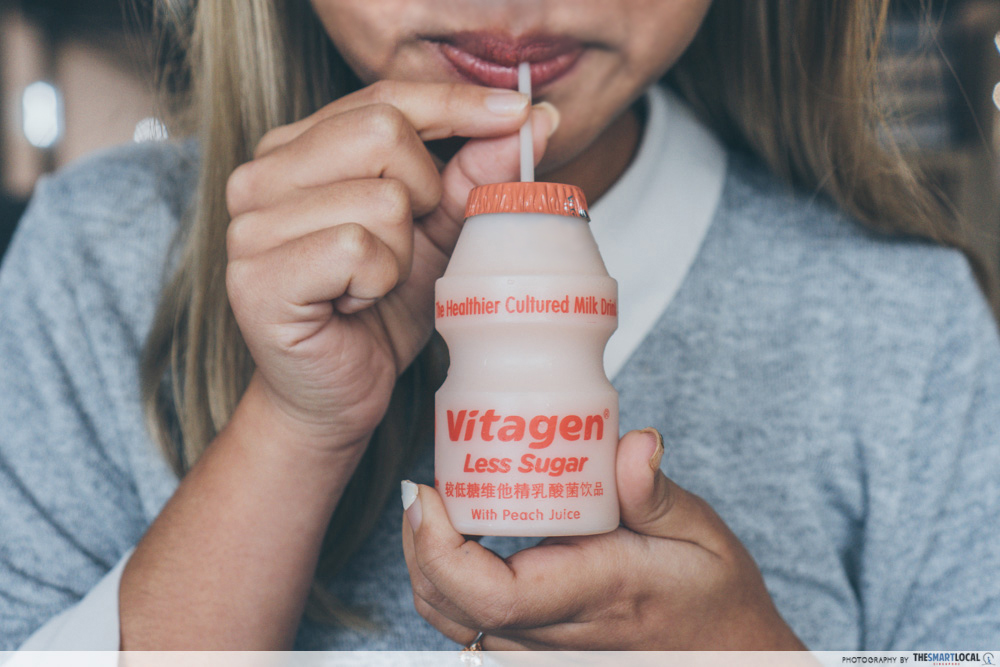
It’s important to be mindful of what you put into your body, and sugar subs are definitely something you want to avoid in your diet. Even schools have banned these sweeteners – so that’s really something to ponder over.
But that doesn’t mean you should completely axe sweet drinks from your diet. There’re still alternatives that are thankfully free of these culprits.
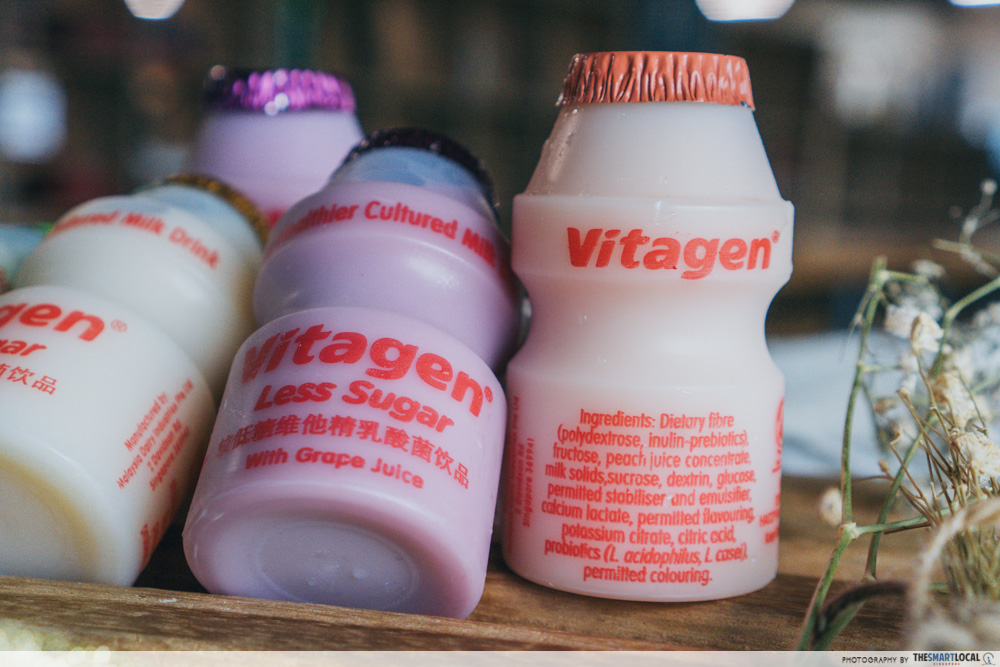 No sneaky artificial sweeteners on the labels
No sneaky artificial sweeteners on the labels
We’ve got our eye on VITAGEN Less Sugar, which provides you with peace of mind as it has zero artificial sweeteners. This cultured milk is not just good for your gut with its probiotics and prebiotics, but also comes with a lot less sugar as compared to similar drinks – a whole 50% less!
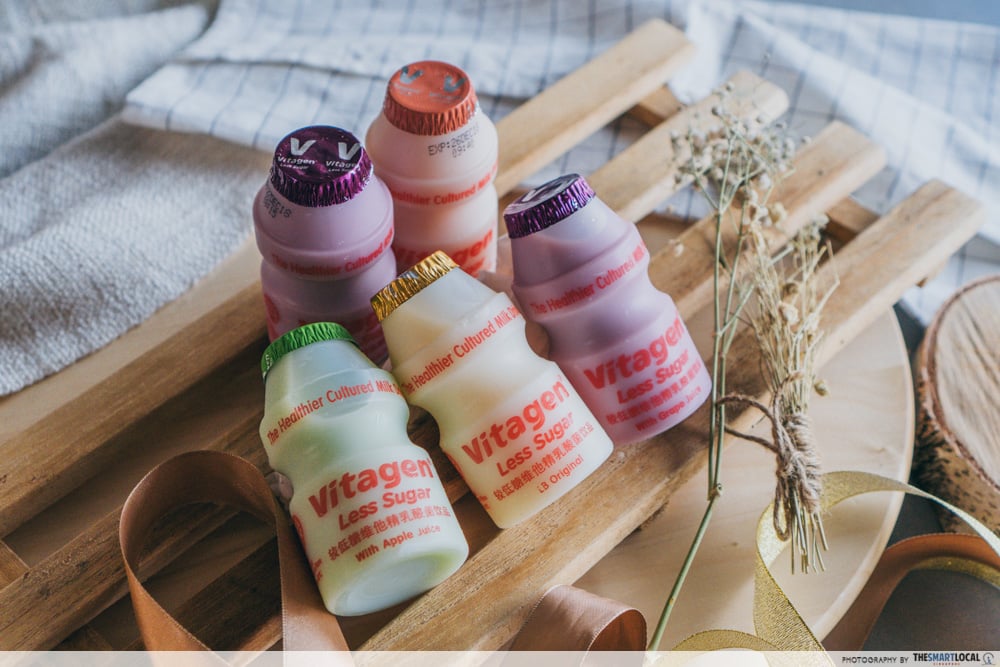
Coming in 4 delicious flavours: LB Original, Apple, Grape, and Peach, VITAGEN Less Sugar can be found in family packs of 5 ($3.20/pack) at your nearest supermarket. Alternatively, you can order online here, where you’ll get to choose your flavours and have them delivered right to your doorstep.
Find out more about VITAGEN Less Sugar here!
This post was brought to you by Vitagen.
Photography by Huiwen Chan and John Lim.